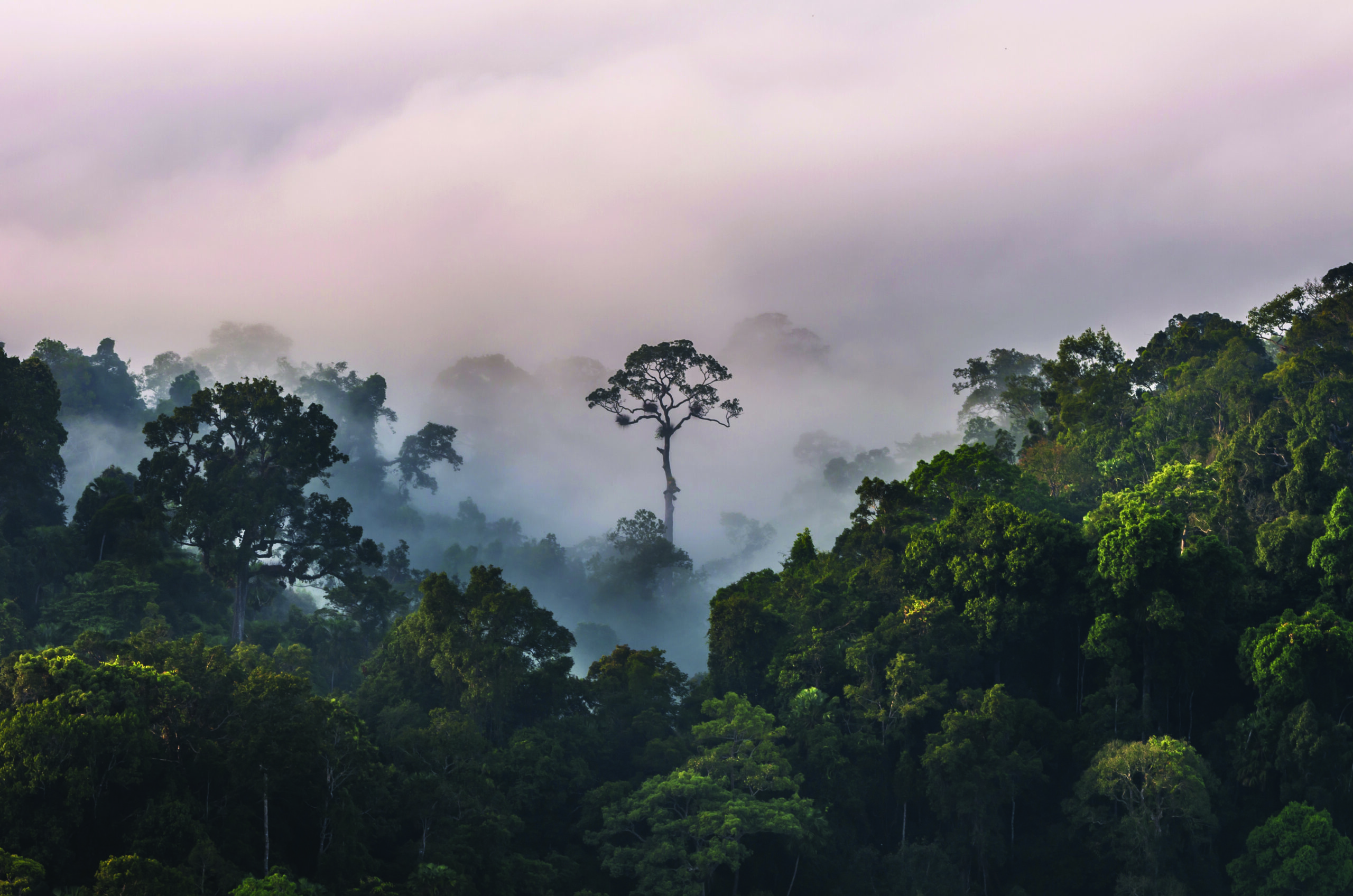
At the age of 10, Dr Sven Batke is inspired by a book written by a man who died protecting the Malaysian rainforest. By the time he gets to university his interest – obsession, now – reaches the next level. Inspired by his undergraduate lecturer’s work on orchids, he takes a course in canopy climbing, and joins his tutor’s next expedition to Borneo.
It’s the start of his treetop adventures, which he describes as ‘inherently challenging’, but ultimately ‘spectacular’. Now he wants his own students to experience that same life-affirming thrill, as part of the BSc (Hons) Plant Science degree he leads at Edge Hill.
“Tree climbing is inherently challenging,” he says. “Particularly in tropical locations, where social insects, such as bees and wasps, build their nests in forest canopies. Proper training is required. I had several encounters with snakes, primates, and even a giraffe (well, her head at least) in the canopy, but by far it’s the insects that cause the most problems.” But Sven says the payoff is more than worth the risk:
“My most memorable trees have been the emergent rainforest Shorea trees in South-East Asia. One particular 90m+ tree towered over everything in the forest. It took us two days to get the ropes up using crossbows. When I arrived at the top of this majestic creature I was stunned, and felt utterly overpowered by the size of the branches, the size of a large 4×4. I felt both intimidated and astonished. Each individual branch was covered in a lush carpet of orchids, ferns and mosses. It was spectacular.”

And Sven has developed the plant science degree to incorporate a canopy climbing module just so his students can also experience these unforgettable moments. It seems to be working:
“Our students have the unique opportunity to learn about the science and the practical methods of accessing and studying forest canopies. And they’ve told us that this module is by far the most exciting module in their degree programme. Universities often focus very heavily on teaching students the theory and the science that underpins our understanding of these systems, which is important. However, also giving them an opportunity to experience it and take away an external accredited qualification, on top of their module credits, is very unusual.”
It’s unusual not only in the UK, but globally. The five-day Basic Canopy Access Proficiency (BCAP) course is very rare at undergraduate level. It comes with external certification by Canopy Access Ltd, a company with over 20 years’ experience of providing rigging and technical rope training solutions for the wildlife film industry. And yes, you probably have seen their work on many of David Attenborough’s finest.
It also represents a real opportunity to explore one of our planet’s final frontiers. Historically, the study of forest canopies has always been difficult. Access was awkward, and the use of cranes, balloons, and platforms often prohibitively expensive. It began to develop as a scientific discipline during the 1980s with advances in rope-climbing methods, one of the most cost effective and versatile methods of accessing the canopy.
Once you can get up there, though, it gets really interesting:
“Forest canopies are one of the most biodiverse habitats on our planet. They are important biodiversity hotspots. Forest canopies also provide crucial ecosystem services, such as nutrient cycling and water cycling, that are key regulating components of our global climate system. We teach our students how to understand these systems and how they interact. The climbing course forms an integral part of the module and allows them to learn how to study them in-situ.”
Plant science is one of the fastest developing science disciplines. And plant scientists are increasingly in demand, as the human race tackles global challenges such as food security, climate change, pollution, loss in biodiversity, and disease.

“Without plant scientists we will not be able to tackle many of these challenges.” warns Sven.
“As part of our degree programme, we help students to develop some of the necessary theoretical and practical skills that will make them enthusiastic, well trained and innovative plant scientists.”
“The access skills they learn allow students to take up roles in the wildlife film industry, in the consultancy sector, for example conducting bat surveys in ancient trees, or leading remote scientific or recreational forest canopy expeditions anywhere in the world.”
Sven knows about leading expeditions, and in 2019 he led an expedition to East New Britain in Papua New Guinea. It ranks amongst his most memorable – and life changing – experiences:
“Climbing 50-60m trees in these untouched forests, knowing that no one else has ever ventured into this unknown world, has truly changed the way I view forest canopies. Although many other forests I’ve been to in Africa, Central America and South East Asia were very diverse, this new frontier was in its own league. Every single branch could not have held more species. It was an entirely different, almost independent ecosystem in the canopy. What excited me most was knowing that many of these species would likely be new to science – too many to sample during our short expedition. A true biodiversity treasure. I would be surprised if this experience could ever be topped.”
Discover Biology and Biosciences at Edge Hill University
October 17, 2024


